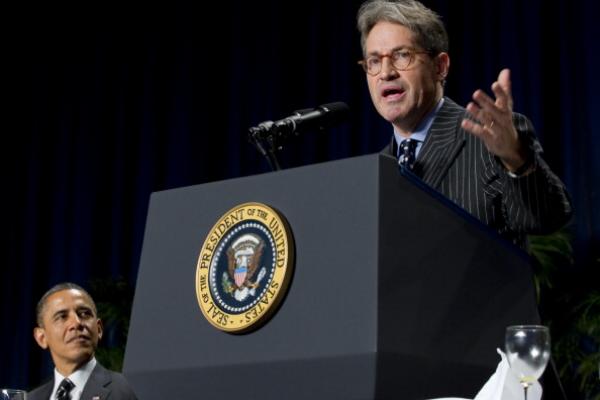It’s been several years since I’ve attended a National Prayer Breakfast, the annual event held Thursday morning in Washington, D.C., attended by the President, members of Congress, and guests — about 2,500 of them.
When I lived and worked in D.C. I attended almost every year. Senator Mark Hatfield, for whom I worked, was a faithful member of the Senate Prayer breakfast group which met weekly, and with the group in the House, sponsors the this national event.
My worry always has been that such a gathering merely sprinkles holy water on the nation’s powerful leaders without any real accountability to the prophetic message of the Gospel. As a breakfast speaker one year, Hatfield called for national repentance for arrogance and sin, referring especially to the Vietnam War. His comments broke with the normal rhetorical decorum of the event and angered President Nixon, but received widespread coverage and much respect.
These days, the early-morning prayer breakfast is also accompanied by countless luncheons, dinners, and seminars for people who come from around the nation and the world to attend. The idea behind the prayer breakfast movement is simple: Gather politicians and leaders together in a country (or state, or city) to pray with one another “in the Spirit of Jesus,” and hope that this dependence on God will transcend differences to build a movement grounded in love for one another and one’s neighbor. It’s supposed to be devoid of “politics.”
Read the Full Article

